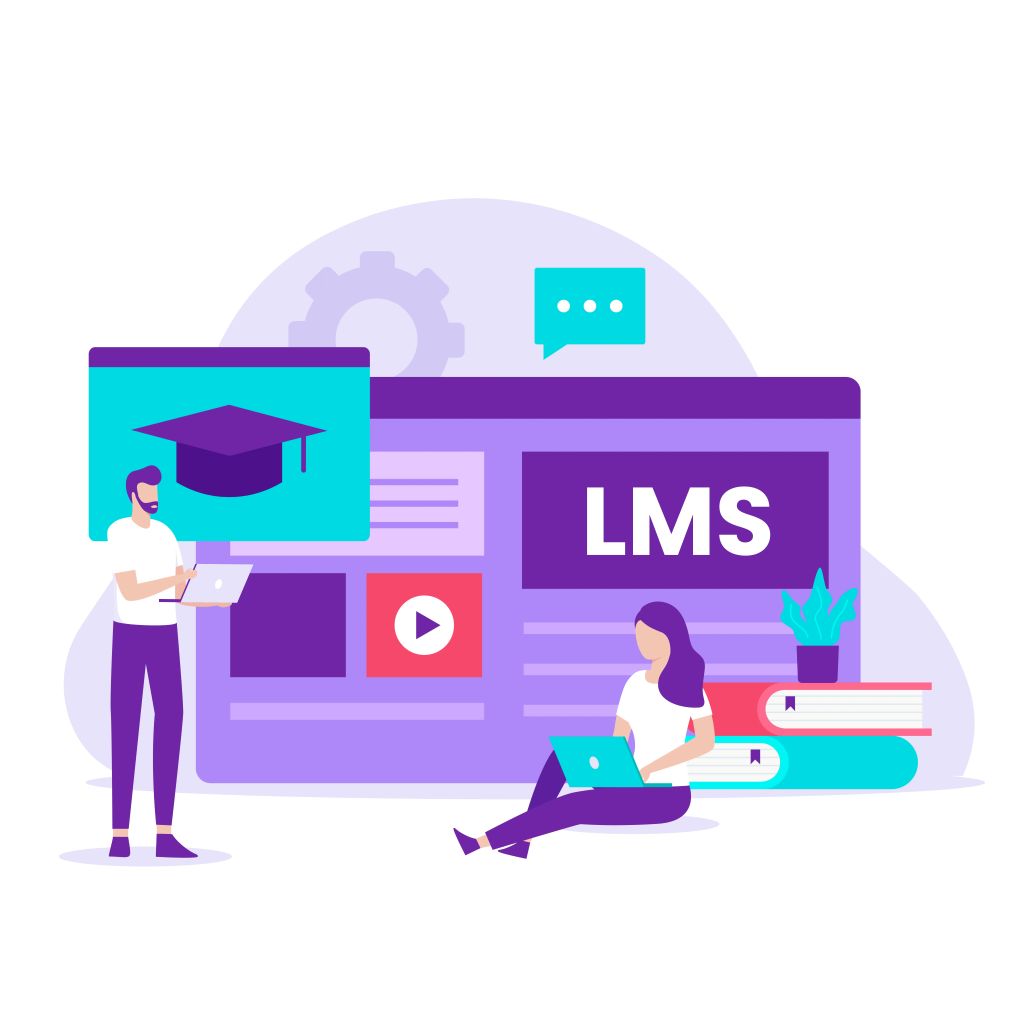The way businesses train employees has changed more in the past five years than in the previous twenty. Organizations now ask themselves: which LXP provides the best ROI for corporate training? Selecting the right platform can directly impact engagement, retention, and overall business performance. With remote work, evolving regulations, and rising skill gaps, corporate training is no longer just a box to check—it’s a business strategy. Organizations now ask themselves: which LXP provides the best ROI for corporate training? Selecting the right platform can directly impact engagement, retention, and overall business performance. That’s why the debate around LMS vs LXP has become so important.
In today’s fast-moving business world, L&D leaders face a critical choice: stick with traditional systems or embrace smarter, more dynamic learning platforms. .Many ask themselves: how do I decide whether an LXP or LMS is right for my organization’s learning strategy? Understanding business goals, employee needs, and compliance requirements is key. While 83% of companies already use an LMS to manage employee training programs, many still struggle with one-size-fits-all structures and passive delivery (Teachfloor). Enter the LXP—a more personalized, on-demand experience. In fact, 72% of LXPs are used for just-in-time, on-demand learning, compared to only 41% of LMSs (eLearning Industry, LLCBuddy). Companies are noticing: 57% of businesses plan to invest in an LXP in the coming year (LLCBuddy).
Imagine this: instead of mandating the same module for everyone, your team receives content tailored to their role, career goals, and preferred way of learning. Skill gaps are addressed just when they arise. Learning becomes part of everyday workflow—not another box to check.
Modern solutions are blurring the lines between the two. Platforms like Calibr Learn combine the structured control of an LMS with the personalized, on-demand experience of an LXP. The result? Training is engaging, scalable, and aligned with business goals—turning learning into a true growth driver.
Ready to experience it yourself? Sign up for 14 days free trial and take the first step toward smarter training or contact our team for more information
What is an LMS? (Learning Management System)

An LMS (Learning Management System) is the backbone of traditional corporate training. It’s designed to:
Deliver structured courses.
Track employee progress.
Ensure compliance.
Generate reports for audits and leadership.
LMS platforms are widely used for onboarding, sales training, leadership development, and professional skill-building. They centralize learning in one place, making it easier to manage large-scale programs, maintain consistency across teams, and track progress with precision. For regulated industries like healthcare and financial services, a compliance training LMS is also essential to meet mandatory standards.
If you’re searching for the best corporate training LMS, the focus is usually on structure, control, and reporting—helping organizations deliver reliable training at scale while reducing risks. Many organizations compare providers to find the Best LMS for corporate training that balances compliance, scalability, and engagement.
Want to explore more reasons why an LMS is valuable? Don’t miss our blog on 6 Key Benefits of an LMS
What is an LXP? (Learning Experience Platform)

An LXP (Learning Experience Platform) flips the traditional model. Instead of focusing on top-down control, LXPs create a personalized, learner-driven experience.
Key features include:
AI-driven recommendations (like Netflix suggesting what to watch).
Microlearning modules that fit into busy schedules.
Social learning and collaboration.
Gamification with badges, points, and leaderboards.
Where an LMS might push a course to every employee, an LXP adapts. For example, a sales rep might receive short sales training videos, while a manager gets leadership micro-courses.
Solutions like Calibr Content Hub make this even more powerful by centralizing resources in one place, ensuring employees can access what they need—when they need it.
LMS vs LXP: Key Differences at a Glance
When evaluating LMS vs LXP, here’s how they compare:
Feature | LMS (Learning Management System) | LXP (Learning Experience Platform) |
Focus | Compliance, structure, reporting | Engagement, personalization, discovery |
Learning Style | Formal, top-down | Informal, self-driven |
Content Delivery | Courses, modules | Microlearning, social, video, podcasts |
Best For | Compliance training, onboarding | Continuous learning, upskilling |
Example Use | Compliance training LMS for healthcare | AI-driven personalized learning paths |
Modern solutions often combine the best of both. With AI-powered learning and personalized learning paths, Calibr delivers structured compliance modules alongside engaging, adaptive training experiences.
LMS vs LXP: Pros & Cons
Platform | Pros | Cons |
LMS |
|
|
LXP |
|
|
Choosing the Right Platform for Your Organization

Selecting between an LMS and LXP—or a hybrid solution—requires careful evaluation of your organization's specific needs, industry requirements, and learning objectives.Leaders often face the question: how do I decide whether an LXP or LMS is right for my organization’s learning strategy? A structured assessment can clarify the best fit. The decision impacts not just training delivery but also employee engagement, compliance outcomes, and overall business performance.
Industry-Specific Considerations:
Regulated industries (healthcare, finance, pharmaceuticals): A compliance training LMS is not just recommended—it's mandatory. Before selecting a vendor, it’s wise to evaluate the LMS company on LMS and LXP for companies to ensure both compliance and engagement goals are met. These sectors require detailed audit trails, mandatory course completion tracking, and standardized content delivery. Features like automated compliance reporting, certification management, and regulatory update notifications are essential. The structured approach ensures no employee can bypass critical safety or regulatory training.
Sales-driven organizations: A sales training LMS ensures product knowledge, sales methodologies, and customer interaction techniques remain consistent across all team members. Look for platforms with role-playing simulations, product catalog integration, and performance tracking that correlates training completion with sales metrics. Real-time content updates ensure your team always has the latest product information.
Technology and creative industries: LXPs excel here because they support innovation, creativity, and self-directed learning. These environments benefit from peer learning, content curation, and personalized learning paths that adapt to rapidly changing skill requirements.
Calibr offers all of these solutions—and much more. To explore everything, visit our website.
Organizational Size and Structure:
Large enterprises (1000+ employees): Require robust LMS infrastructure with advanced reporting, multiple administrator levels, and integration capabilities with HRIS systems Global organizations particularly benefit from multi-language support and regional content customization. Platforms like Calibr make this seamless by offering built-in multi-language support, ensuring teams across different geographies can access training in the language that fits them best.
Medium-sized companies (100-1000 employees): Often benefit from hybrid platforms that provide structure without overwhelming complexity. They need scalability but also agility to adapt quickly to changing business needs.
Small businesses (under 100 employees): May find LXPs more cost-effective and easier to implement, especially if compliance requirements are minimal and learning goals focus on skill development rather than mandatory training.
Learning Culture and Employee Preferences
Traditional, hierarchy-focused organizations: LMS platforms align with structured learning approaches and clear progression paths. Employees expect guided learning with defined outcomes and measurable progress.
Innovation-driven cultures: LXPs support experimentation, peer learning, and self-directed development that aligns with cultures valuing autonomy and creativity.
Organizations focused on retention and engagement: Modern employees, particularly millennials and Gen Z, prefer personalized, social learning experiences. Microlearning modules, gamification, and peer interaction significantly improve engagement rates and reduce turnover. Platforms like Calibr Learn make this possible with built-in gamification and adaptive learning paths.
Budget and Resource Considerations
Limited IT resources: Cloud-based LXP solutions often require less technical maintenance and setup compared to comprehensive LMS implementations.
Tight budgets: Consider total cost of ownership including implementation, customization, ongoing support, and content development. Some LXPs offer more affordable starting points but may require additional investment in content creation.
Dedicated L&D teams: Organizations with substantial learning and development departments can maximize LMS capabilities through custom content creation, detailed analytics utilization, and comprehensive program management. With tools such as Calibr Craft, teams can streamline course authoring and reduce content development costs.
Integration Requirements
Complex tech stacks: Evaluate how well platforms integrate with existing HRIS, CRM, and productivity tools. Poor integration leads to data silos and administrative overhead.
Single sign-on (SSO) requirements: Enterprise environments typically require seamless authentication integration with existing identity management systems.
Data analytics needs: Organizations requiring detailed learning analytics for business intelligence should prioritize platforms with robust reporting capabilities and API access for custom dashboards. Here, Calibr’s real-time analytics stand out, enabling both compliance tracking and engagement insights.
Implementation Timeline and Change Management
Rapid deployment needs: LXP solutions often deploy faster due to their cloud-native architecture and pre-built content libraries.
Extensive customization requirements: LMS platforms typically offer more customization options but require longer implementation periods and change management processes.
User adoption concerns: Consider platforms with intuitive interfaces and mobile optimization to encourage employee adoption and sustained usage.
Hybrid Solutions: The Best of Both Worlds
Many organizations discover that neither pure LMS nor LXP perfectly meets all their needs. Hybrid platforms or complementary system approaches offer comprehensive solutions:
Structured compliance training delivered through LMS functionality
Skill development and career growth supported by LXP features
Unified user experience that seamlessly transitions between structured and exploratory learning
Comprehensive analytics that track both compliance and engagement metrics
For example, Calibr's industry solutions support healthcare, retail, and manufacturing by balancing structure and flexibility. Healthcare clients can ensure regulatory compliance while providing engaging professional development opportunities. Retail organizations can standardize customer service training while allowing employees to explore advanced sales techniques through personalized learning paths.
Making Your Decision:
Start by conducting a thorough needs assessment:
Audit current training requirements: Identify mandatory vs. developmental learning needs
Survey employee preferences: Understand how your workforce prefers to learn and engage with content
Evaluate technical constraints: Assess integration requirements, security needs, and IT support capabilities
Calculate total cost of ownership: Include implementation, ongoing support, content development, and user training costs
Plan for scalability: Consider how your needs might evolve over the next 3-5 years
The most successful organizations choose platforms that align with their current needs while providing flexibility to adapt as their learning requirements evolve. Whether you select an LMS, LXP, or hybrid solution, the key is ensuring the platform supports your broader organizational goals and enhances employee development in measurable ways.
For more information on selecting the perfect platform for your needs, read our full blog on Online Corporate Training Platforms: Complete Buyer's Guide
How It Works in Practice: A Company Case Example
Let’s take a real-world scenario.
Imagine a healthcare company with 3,000 employees. Their challenge? New regulations require every nurse to complete compliance training, while managers want leadership development and frontline staff need customer service skills.
With a traditional LMS alone, compliance training is covered. But employees may disengage, seeing it as a “check-the-box” exercise.
With an LXP alone, employees may enjoy learning, but compliance reporting could fall short.
Here’s how Calibr solves this:
Compliance Training with LMS Structure
Using Calibr Learn, the company delivers mandatory compliance modules.
SCORM compliance ensures content meets industry standards.
Assessment & Certification features automatically track completions.
Personalized Development with LXP Features
Nurses get micro-courses on bedside communication via microlearning.
Managers receive leadership content from Calibr Craft.
Employees explore curated resources in Calibr Content Hub.
Analytics for ROI
With real-time analytics, leaders can track progress and identify skill gaps instantly.
The result? Compliance is 100% achieved, employees feel invested in their growth, and leadership sees measurable ROI.With Calibr, you get all of this in one platform—blending the structure of an LMS with the personalization of an LXP.
Ready to experience it yourself? Contact us or Schedule a demo with Calibr today and see how it transforms your training strategy.
The Future of Corporate Training: Blending LMS and LXP Strengths
The truth is, the LMS vs LXP debate isn’t about choosing one forever. The future of corporate training is about integration.When planning for long-term growth, companies often wonder: which LXP provides the best ROI for corporate training? The answer depends on integration, analytics, and learner adoption
AI-powered recommendations keep training relevant.
Mobile learning ensures access anywhere, anytime.
Gamification makes learning fun and competitive.
Personalized learning paths adapt to each employee’s goals.
In other words, the best corporate training platforms are hybrids—combining the compliance power of an LMS with the engagement of an LXP. Platforms like Calibr Craft make it easy to create both formal and informal content, while features like real-time analytics prove training’s business impact.
Conclusion: Making the Right Choice for Lasting Impact
When it comes to LMS vs LXP, there’s no one-size-fits-all answer. For compliance-heavy industries, an LMS is non-negotiable. For organizations focused on engagement and skill development, LXPs shine. But the real future lies in combining the best of both.
With Calibr Learn, you don’t have to choose. This makes it easy for organizations to answer: how do I decide whether an LXP or LMS is right for my organization’s learning strategy? The platform can adapt to compliance, engagement, and growth needs simultaneously. You get the structured reliability of an LMS and the engaging personalization of an LXP—all in one. Whether it’s compliance, sales training, or leadership development, Calibr ensures corporate training is simpler, smarter, and more impactful.
Ready to see how Calibr can power your training strategy?
Explore Calibr Learn today and transform the way your people learn. Contact us, sign up, or schedule a demo to get started.


